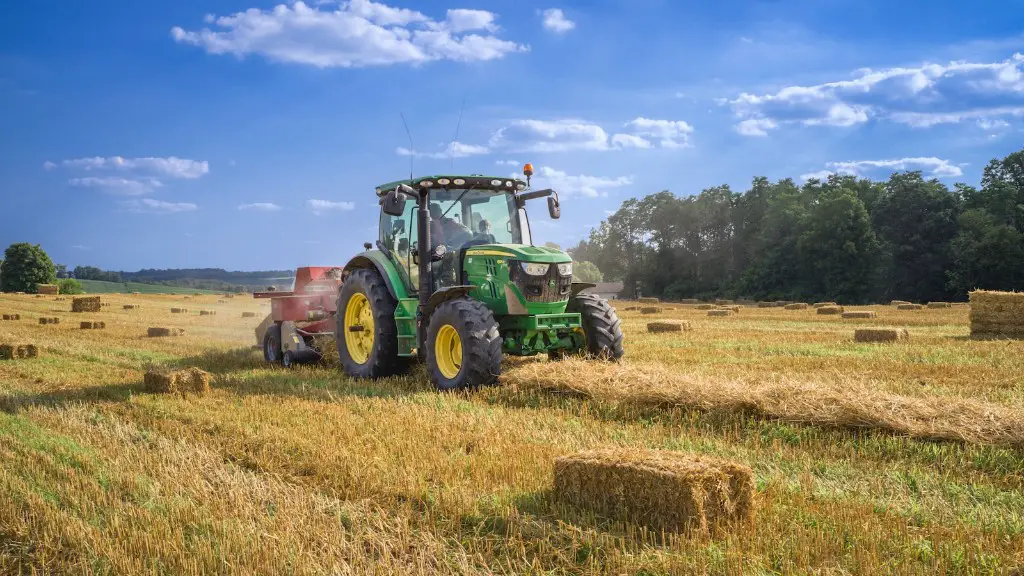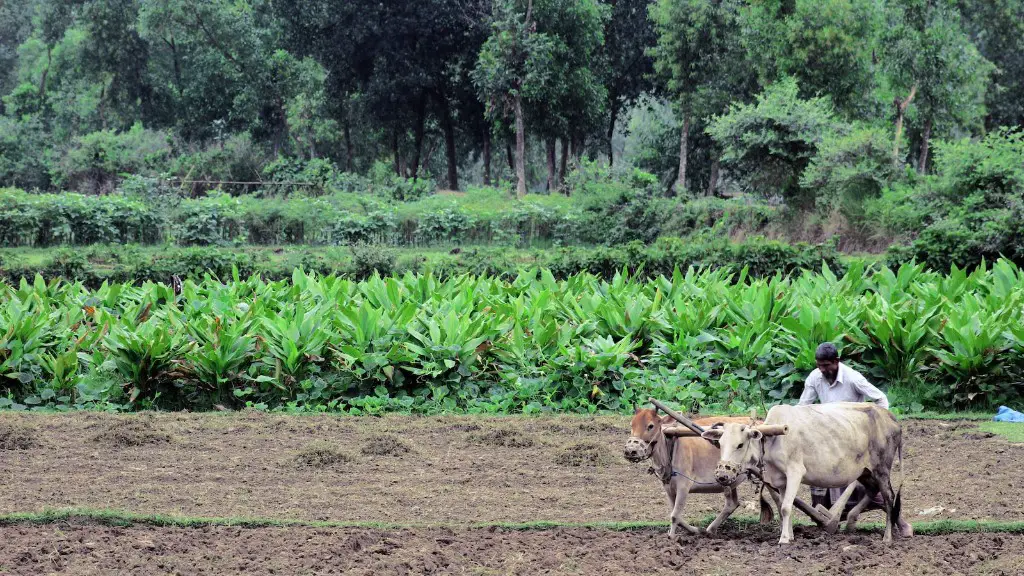The indigenous societies that existed for thousands of years before the spread of agriculture are known as hunter-gatherer societies. These traditional lifestyles have been under threat in recent times, with many of these communities giving way to agricultural settlements. This article explores why some groups may have resisted shifting to agriculture.
One of the primary reasons these societies may have resisted the change to agriculture is the disruption to their traditional way of life. Hunter-gatherer societies were deeply connected to their environment, often worshiping nature gods and developing rituals that were almost entirely linked to the natural environment. Conversely, agriculture is a form of production that relies heavily on human labor and often involves significant disruption to the environment. Therefore, shifting to agriculture posed a threat to the traditional cultural values of these communities.
In addition, many individuals would have been concerned about the effects of an agricultural lifestyle on their physical health. Those who transitioned to sedentary farming practices often experienced a decline in health due to nutritional deficiencies, an increase in physical labor, and the effects of being confined to limited spaces for long periods of time. Hunter-gatherers, in contrast, could maintain a healthy lifestyle in their nomadic lifestyle due to a constantly varied diet and a range of physical activities.
Furthermore, it is likely that the native communities may have resisted due to the monopolization of their resources. In many countries, agricultural policies and laws were implemented to facilitate the transfer of land and resources away from the traditional owners. This prevented them from having access to the abundant resources associated with their traditional lifestyles and would have been a major source of contention.
The communities may also have had reason to oppose the introduction of alien ideologies that were often associated with the settlers. They were likely to be suspicious of foreign concepts such as organized religion and hierarchical political structures. These would have been solely alien to the communities and could have been seen as a threat to their culture and a source of unease.
Economic Impacts
The shift to agriculture could have had negative impacts on the economic autonomy of native communities. This is because agricultural production fundamentally relies on the purchase of resources from external sources and the sale of produce to third-party buyers. Thus, transitioning to agriculture would have required a high degree of involvement from outside entities, resulting in the loss of many of the economic benefits that hunter-gatherers experienced independently.
Additionally, agricultural practices often led to a decrease in wages for laborers, with many of the profits resulting from the produce going to the landowner or other external sources. This would have drastically decreased the economic power of the native populations and weakened them against outside influences. Therefore, they would have had to consider the economic impact that shifting to agriculture would have on their autonomy before making the decision to transition.
Furthermore, there would have been fewer attractive incentives for natives transitioning to an agricultural lifestyle. Hunter-gatherers had the autonomy to decide when, where and how to make their livelihoods, whereas agricultural societies often relied on landlords or supervisors to make these decisions for them. This would have been a major detriment for many of these societies who had enjoyed a greater level of independence in the past.
Additionally, the introduction of private property laws which specifically targeted native populations would have undermined the ownership of resources they had traditionally enjoyed. This would have made the transition far less attractive, as those shifting to agriculture would have to part with many of the resources they would need to survive. As a result, it is understandable why these communities may have been resistant to the shift towards agriculture.
Effects on Social Structures
The switch to agriculture could also have had drastic impacts on the social structure of the societies. Hunter-gatherer societies relied on conditions of mobility and egalitarianism for their social structures to function due to their nomadic lifestyles. Conversely, agricultural settlements could become very hierarchical and oppressive, with those on the lower rungs of society often suffering from exploitation and oppression. Thus, transitioning to agriculture could have had detrimental consequences for the social structures of the societies.
The introduction of a wage economy may also have had far-reaching effects on the traditional lifestyle of native communities. By relying on wage labor and reduced control over their own livelihoods, many individuals would have had to drastically alter their life to fit the changing economic structure. This would have been a significant source of discontent and dissatisfaction, leading to resistance against the shift.
Finally, the introduction of settlements and villages would have had a dramatic impact on the social structure of the native populations, as they would have had to adapt to having large groups of people living in close proximity to one another. This would have been a major source of unease, as they were not accustomed to interacting with such large numbers of people on a daily basis. Therefore, it is reasonable to assume that they may have resisted the change to an agrarian lifestyle in order to maintain their traditional way of life.
Environmental Impacts
The communities may also have been concerned about the detrimental effects of an agricultural lifestyle on the natural environment. Agriculture requires a high degree of disruption to the environment, with land often being cleared to make way for new settlements. This could have had detrimental effects on the delicate ecosystems of the areas, as well as threatening the traditional lifestyles of the inhabitants. This could have been a major source of discontent and a reason why many native communities chose to resist the change to an agrarian lifestyle.
Additionally, agricultural practices often involve increased use of chemical fertilizers and pesticides, which could have had significant long-term effects on the environment. This is especially true in areas where traditional farming practices have been abandoned and replaced with industrial methods. The introduction of such practices could have resulted in significant environmental damage, leading native populations to oppose the shift.
Furthermore, agricultural practices could have led to an increase in soil erosion and water pollution. This could have had serious consequences for the food production of the native societies, as access to clean water and fertile soil are the basic building blocks of a successful agricultural society. Thus, some communities may have resisted the transition to agriculture due to fears over the effects it would have on their resources.
Political Impact
The transition to agriculture could have had detrimental impacts on the political autonomy of the societies. As agriculture relies heavily on external support, it is often necessary for outside entities to become involved in the production of food. This could lead to an increased reliance on external political support and could have resulted in an erosion of the autonomy that the societies had previously enjoyed. This could have been a source of unease, leading many native populations to resist the change.
Additionally, agricultural settlements often require strong central governing bodies with the authority to implement policies and enforce laws. This could have been viewed as a threat to the autonomy of the societies, as they would no longer be able to make decisions related to their livelihoods without the interference of an external entity. This could have been a major source of contention, leading many to resist the transition.
Finally, agricultural settlements are often associated with land monopolization and exploitation of resources. This could have posed a serious threat to the traditional lifestyle of these societies, as the resources that they had traditionally relied on for their subsistence would now no longer be available to them. Clearly, this could have been a major deterrent for those who wished to maintain the traditional lifestyles that had been practiced for thousands of years.
Cultural Resistance
The introduction of agriculture could also have posed a threat to the cultural values of the communities. Hunter-gatherer societies were deeply connected to their environment, often worshipping nature gods and developing rituals that were almost entirely linked to the natural environment. Agriculture, on the other hand, requires a high degree of disruption to the environment, leading to a degradation of the cultural values of the societies. This could have been a major source of resistance for many indigenous populations.
In addition, shifting to agriculture could have threatened the traditional lifestyles of these societies. Many of the activities associated with hunter-gatherer lifestyles, such as hunting, gathering and trading, would no longer be possible. This would have resulted in a drastic decrease in the material wealth associated with the traditional lifestyles and could have been seen as a threat to their way of life. Therefore, it is understandable why many native communities may have resisted the transition.
Finally, the introduction of foreign ideologies could have posed a significant threat to the traditional values of the native communities. As noted earlier, they were likely to be suspicious of foreign concepts such as organized religion and hierarchical political structures. These would have been entirely alien to the communities and could have been seen as a serious challenge to their lifestyle.
Conclusion
The native populations that existed prior to the spread of agriculture had a range of reasons to resist the transition to an agricultural lifestyle. From challenges to their traditional way of life to threats to their economic autonomy, the transition could have had far-reaching impacts on the communities that practiced hunter-gatherer lifestyles. Nonetheless, it is understandable why many would have been resistant to the change.





